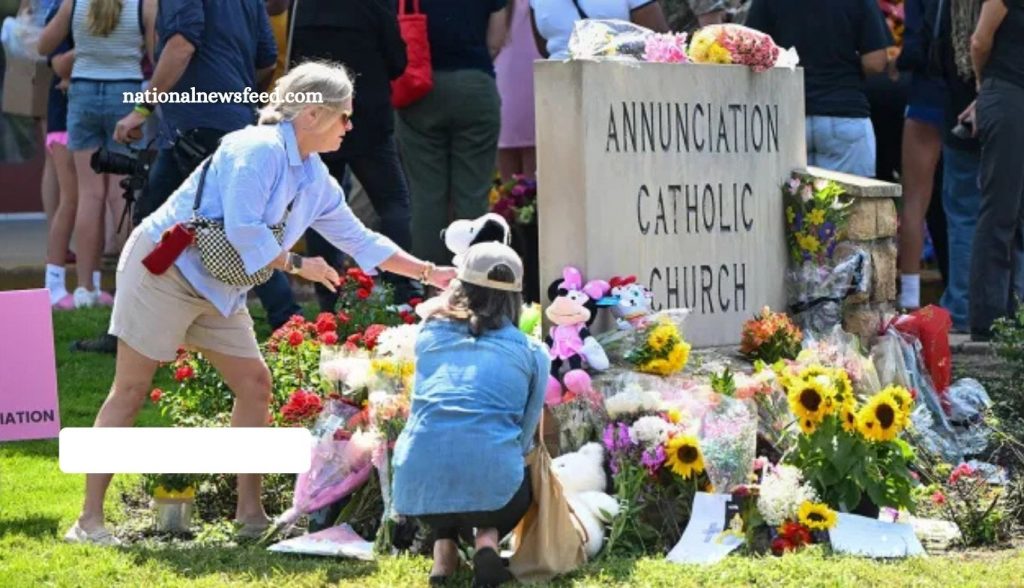The recent mass shooting at a Minneapolis Catholic school has reignited the national debate over “thoughts and prayers.” Republican leaders and conservative media defend the gesture, emphasizing the comfort and guidance faith provides during tragedy.
Critics, including Democrats and liberal commentators, argue that such expressions are insufficient without concrete action to curb gun violence. The incident, which left two children dead, underscores the ongoing tension between faith, politics, and public safety in the United States.
Conservatives Push Back on Criticism of Prayer
Republican politicians, supported by conservative media, are defending “thoughts and prayers” in the wake of mass shootings, emphasizing the comfort many Americans find in faith during tragedy. Critics argue that dismissing these gestures undermines the spiritual solace people rely on in moments of crisis.
Read More: America’s Doctors Face Declining Influence in Trump’s Washington
The Controversy Surrounding “Thoughts and Prayers”
The phrase “thoughts and prayers” has become increasingly contentious as mass shootings at schools and public spaces continue in the U.S. Critics, particularly Democrats and liberal commentators, see it as an empty gesture when not paired with tangible action on gun control.
Minneapolis Shooting Sparks Renewed Debate
The debate flared again after a Minneapolis Catholic school shooting on Wednesday left two children, ages 8 and 12, dead. Former White House Press Secretary and MSNBC host Jen Psaki publicly criticized “thoughts and prayers” on social media, arguing they do not prevent shootings or make parents feel safe.
Minneapolis Mayor Jacob Frey (D) also addressed the issue, noting the children were “literally praying” when the shooting occurred.
Conservative Response: Faith Matters
Vice President Vance and White House Press Secretary Karoline Leavitt defended prayer as meaningful and important. Vance tweeted that people pray because “our hearts are broken” and “God works in mysterious ways and can inspire us to further action.” Leavitt called Psaki’s remarks “incredibly insensitive and disrespectful” to millions of Americans of faith.
Fox News and other conservative outlets highlighted the criticism, framing the debate as part of the ongoing political divide between right- and left-leaning media.
Republican Leaders Weigh In
House Speaker Mike Johnson (R-La.) condemned attacks on religion during a time of tragedy, emphasizing that practical measures exist to protect children in schools. “This is not the time to politicize these issues,” he said.
The Role of Faith in Politics
Some observers caution that the debate over prayer itself is being politicized. Joe Ferullo, CEO of the National Catholic Reporter, said this debate illustrates “how faith is used and abused in political discourse.” Prayer can provide comfort, he said, but it is not sufficient to address systemic problems.
Frustration Over Gun Control
Public frustration over “thoughts and prayers” often reflects broader dissatisfaction with inaction on gun control. Past congressional efforts have frequently resulted in limited measures, including after the Sandy Hook Elementary shooting in 2012. Authorities report the Minneapolis shooter obtained his firearms legally and displayed offensive language on his weapons, intensifying the tragedy.
Historical Context: Prayer vs. Action
The debate over “thoughts and prayers” is not new. After a 2015 community college shooting in Oregon, former President Obama stated that “our thoughts and prayers are not enough” to prevent mass shootings, emphasizing the need for legislative action.
Many Democrats argue that focusing on the value of prayer distracts from the root cause: easy access to firearms. “Faith without works is dead,” one Democratic strategist told The Hill.
Differing Perspectives on Religion and Prayer
Experts note that the debate reflects differences in how Americans view faith. Michael Emerson of Rice University explained that prayer is central to religious belief, but questions remain about whether it should be accompanied by concrete action. “When you see someone hungry, do you just pray or also provide food? It’s the same with addressing mass shootings,” he said.
Political Implications
Some analysts suggest Democrats are using the debate to highlight Republican vulnerabilities ahead of the midterms. “Lawmakers aren’t likely to take significant legislative action, so Democrats emphasize that gap,” said a national Republican strategist.
Frequently Asked Questions
What does “thoughts and prayers” mean in the context of mass shootings?
“Thoughts and prayers” is a phrase often used by public figures to express sympathy and spiritual support for victims and their families after tragedies, including mass shootings.
Why is “thoughts and prayers” controversial?
Critics argue that offering thoughts and prayers without concrete actions—such as gun control measures—can appear empty or dismissive of the need to prevent future tragedies.
How did the Minneapolis shooting reignite this debate?
A lone gunman killed two children at a Minneapolis Catholic school, prompting public discussion about the role of prayer versus legislative action in preventing mass shootings.
How have Republican leaders responded?
Republican politicians and conservative media figures defended the gesture, emphasizing that prayer provides comfort and can inspire meaningful action.
What is the Democratic perspective on this issue?
Many Democrats argue that focusing on prayer distracts from addressing the root causes of gun violence, particularly the ease of access to firearms.
Has this debate occurred before?
Yes. Following mass shootings, including the 2012 Sandy Hook and 2015 Oregon community college shootings, political leaders have repeatedly debated the role of thoughts and prayers versus policy action.
Can prayer and action coexist in preventing mass shootings?
Experts suggest that while prayer can provide emotional support, effective prevention requires combining faith with tangible measures, such as legislation and community safety programs.
Conclusion
The Minneapolis school shooting highlights the enduring tension between faith, politics, and public safety in the United States. While Republicans defend “thoughts and prayers” as a meaningful expression of comfort and guidance, critics argue that prayer alone cannot prevent future tragedies without concrete action on gun violence. The debate underscores a broader national struggle to balance spiritual support with practical solutions, leaving Americans to navigate grief, responsibility, and policy reform in the face of recurring mass shootings.

